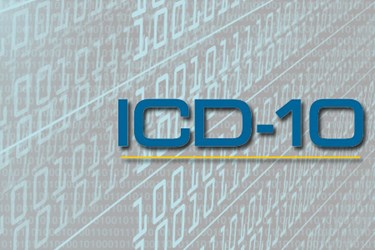What Toll Are ICD-10 Delays Taking On Your Healthcare IT Clients?
By Megan Williams, contributing writer

As ICD-10 continues to be delayed, your clients will face a range of different effects.
ICD-10 implementation has been extended until October 1, 2015, giving unprepared providers time to adjust, even as physicians continue to express their disapproval.
Wasted Resources
An article from Health Leaders Magazine highlights the fact that, while the extension has been welcomed by many providers, it has left others penalized for preparedness.
St. Claire Regional Medical Center in Morehead, KY, is a prime example. Their CIO, Randy McCleese weighed in: “We were prepared to be ready October 1 of 2014. The plan was we were going to start dual-coding in ICD-9 and ICD-10 in the spring of 2014. We got our coders certified. They were ready to go. We hadn’t started teaching physicians as far as what needed to go there for the ICD-10s, but we’d started meeting with them, letting them know that these changes are coming.”
All of the progress toward that deadline was halted by the “doc fix” legislation intended to fix the Sustainable Growth Rate formula that’s used to determine Medicare reimbursement for physicians.
Mysterious Legislation
In March of this year, a still unknown person inserted section 212 into the doc fix bill, meaning that the secretary of Health And Human Services was prohibited from adopting ICD-10 code sets as the standard before October 1, 2015 — something that McCleese found frustrating. His coders will not need to be recertified (instead, they’ll just need to catch up on changes that happened during the delay), but for many providers, the delay means money wasted on acquiring expensive, computer-assisted coding technology solutions.
Future Concerns
As providers use the extra time to continue the struggle of getting stubborn physicians to integrate into a changing healthcare system, many are left wondering what will happen if there is a fifth delay. Much trust was lost after the 2014 implementation date, a date that was supposedly set in stone, was pushed out.
For solutions providers, all this hand wringing means increased time to thoroughly vet both the technical and training needs of providers. They may be reluctant, but the transition is coming. This means, that they can begin taking steps toward preparedness including, according to EHR Intelligence:
- Ensuring all IT systems are upgraded and tested
- Checking to make sure all systems perform up to organizational desires
- Ensuring systems integrate properly into existing work flows
- Making sure that coders get proper training and practice around dual-coding procedures
- Conducting a financial impact analysis
Recommended Resources
To best prepare for addressing your clients’ needs around ICD-10, review the resources provided in our VAR Preparedness Kit.
